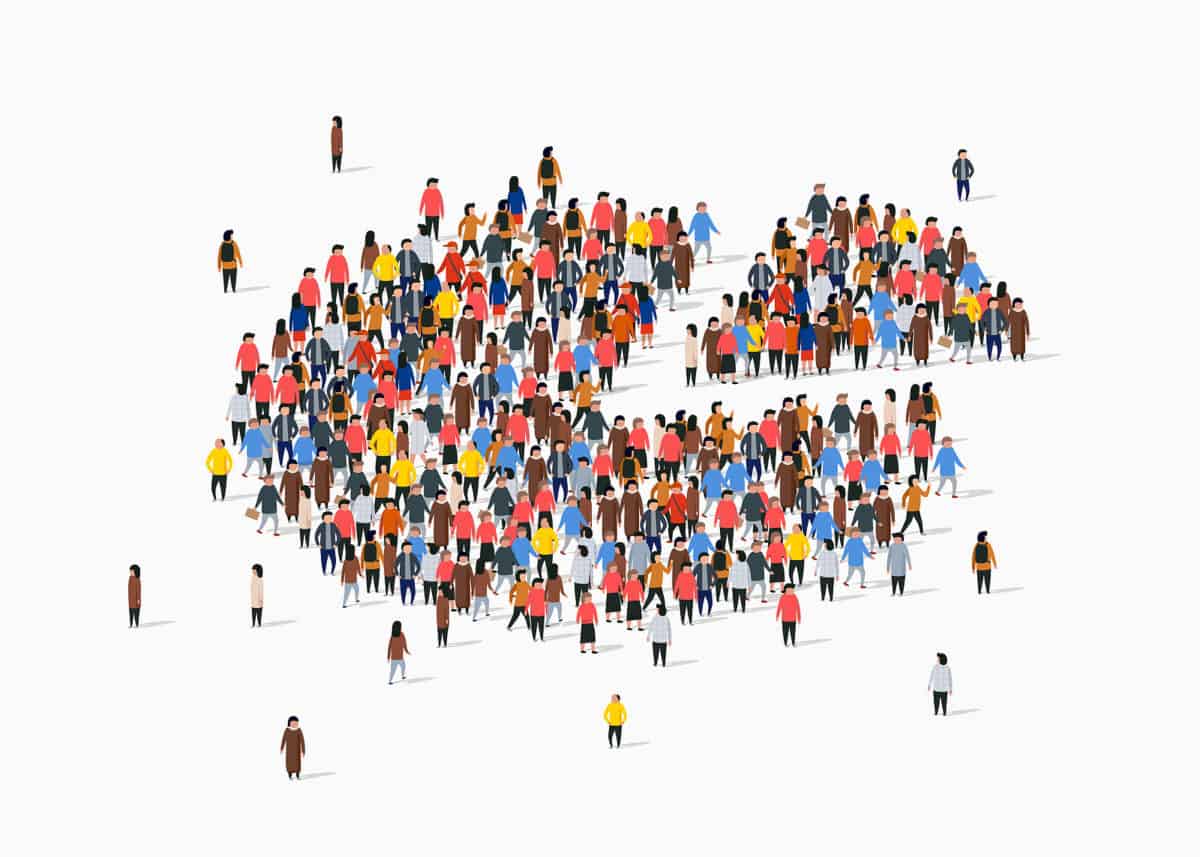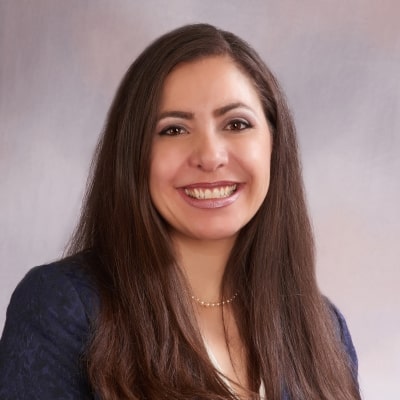
A major news story of 2020 was the under-representation in COVID-19 clinical trials of people from Black, Latino and Native American communities—the ones hit hardest by the pandemic.1,2 This issue, however, isn’t specific to COVID-19. It’s systemic.
- Black Americans represent 12.7% of the U.S. population, but only ~4% of clinical trial populations3,4
- Hispanics and Latinos represent 18.1% of the U.S. population, but less than 8% of clinical trial populations3,5
- Native Americans represent 2% of the U.S. population, but almost 2/3 of clinical trials report having no Native American participation4,6
- Asian Americans represent almost 6% of the U.S. population, but less than 2% of clinical trial populations7
So now that the world is watching, how can we change things for the better? First, we need to think about what we can do as individuals. For me, as a Latin American woman with a platform in the healthcare industry, I am committed to advocating for diversity in clinical research to address health inequality.
My interest in this issue began when I was working in the pharmaceutical industry in Latin America. That experience filled me with both passion and purpose. Three years ago, I pivoted my career to one where I could make a difference within the healthcare industry here in the United States. Today, as Director of Clinical Trial Diversity Strategy for Bristol Myers Squibb, I can ensure that internal and external stakeholders in clinical operations, R&D and enabling areas take sustainable actions to increase diversity and inclusion from the very beginning of the drug development process.
Individuals, though, can only play a part in creating lasting change. Healthcare institutions must do the work of building trust and increasing access to medical research.
Breaking Down Barriers: A Case Study
Black men are about 60% more likely to develop prostate cancer than white men and twice as likely to die from it.8 Yet Black people make up only about 4% of screened participants in prostate cancer studies.9 In order to ensure that Black representation in clinical trials for prostate cancer—and several other diseases—reflects the prevalence of those conditions in the Black community multiple barriers need to be addressed, including10:
- A lack of diversity among trial investigators and research staff
- Low referral rates due to unseen bias and non-existent community engagement
- Inexperience among research site staff regarding the need for a diverse population
- Distrust of the healthcare system within the Black community
In a recently enrolled prostate cancer study, Bristol Myers Squibb was able to increase enrollment of Black participants from 9% to 17% by focusing on the patient and caregiver journeys within the community and by taking a comprehensive approach to recruiting that included community outreach, targeted site selection, and culturally appropriate recruitment materials.
Community outreach started with organizations that have credibility in the community, such as barbershops, churches, and historically Black fraternities. We also relied on partnerships with health-focused organizations that share our goals, such as Black Health Matters and the Prostate Health Education Network, to help us generate awareness about prostate cancer and the importance of clinical trials.
Targeted site selection also played a key role in recruitment. By 2022, 25% of Bristol Myers Squibb clinical trial sites will be situated in racially and ethnically diverse metro areas, ensuring that our outreach efforts are supported by convenient and accessible testing facilities. And on another note, the Bristol Myers Squibb Foundation, has developed a two year Diversity in Clinical Trials Career Development Program to train 250 early-stage investigators.
Developing culturally appropriate recruitment materials was another crucial factor in increasing enrollment. A one-size-fits-all approach tends to have bias toward the largest audience segment, often to the exclusion of important, but numerically smaller populations. Partnering with our internal Black Organization for Leadership and Development group, we created educational and recruitment materials geared specifically toward the patients we wanted to reach. Not only did we increase Black participation in the prostate cancer study, but when enrollment closed, general interest in clinical trials continued to increase.
Mistrust of clinical trials in the black community is something that is grounded in historical fact and will take time to remedy. While we cannot change the past, it is important that we transparently acknowledge past abuses and continue to find ways to strengthen relationships in the Black community by making research studies more available and accessible and maintain a presence in these communities well beyond the completion of clinical studies.
The successes we achieved in this prostate cancer study are not the end for Bristol Myers Squibb, but just the beginning of our commitment toward achieving health equity. We will continue to apply these learnings to further studies across disease categories.
For the healthcare industry, it is my sincere hope that interest in health equity sparked by COVID-19 will not fade when the pandemic is over. With more thoughtful, intentional, and equitable clinical trial design, we can give everyone the care they deserve. It’s time to better serve diverse populations and ultimately improve treatment outcomes for people in currently underserved communities.
Bristol Myers Squibb has been a pioneer in the Boston area life science ecosystem for more than a decade, and continues to expand its word-class science, technology and manufacturing footprint in Cambridge and Devens, MA.
Sources:
- Risk for COVID-19 infection, hospitalization, and death by Race/Ethnicity. Centers for Disease Control and Prevention. https://www.cdc.gov/coronavirus/2019-ncov/covid-data/investigations-discovery/hospitalization-death-by-race-ethnicity.html. Accessed October 5, 2021.
- Laura E. Flores BA. Racial/ethnic minority, female, and older individuals in vaccine clinical trials. JAMA Network Open. https://jamanetwork.com/journals/jamanetworkopen/fullarticle/2776562. Published February 19, 2021. Accessed October 5, 2021.
- U.S. Census Bureau American Community Survey Demographic and Housing Estimates. https://data.census.gov/cedsci/table?q=United%20States&g=0100000US&tid=ACSDP1Y2017.DP05. Accessed October 28, 2021.
- Caroline Chen RW. Black patients miss out on promising cancer drugs. ProPublica. https://www.propublica.org/article/black-patients-miss-out-on-promising-cancer-drugs. Accessed October 5, 2021.
- Natalie McGill. As Hispanics lag in clinical trials, health researchers take action: Outreach expands. The American Public Health Assocation. https://www.thenationshealth.org/content/43/7/1.2. Accessed October 28, 2021.
- American Indians and Alaska Natives – by the numbers. The Administration for Children and Families. https://www.acf.hhs.gov/ana/fact-sheet/american-indians-and-alaska-natives-numbers. Accessed October 5, 2021.
- Clinical Trial Diversity and Asian Americans, Native Hawaiians and Pacific Islanders. https://www.apiahf.org/wp-content/uploads/2021/01/Clinical-Trial-Diversity-Factsheet-v7_1.6.2021.pdf. Accessed October 28, 2021.
- August 30 2021, August 26 2021, July 29 2021. African American disparities in Low-Grade prostate cancer death. National Cancer Institute. https://www.cancer.gov/news-events/cancer-currents-blog/2019/prostate-cancer-death-disparities-black-men. Accessed September 23, 2021.
- Black men left out of late-stage clinical trials for prostate cancer. News. https://www.hsph.harvard.edu/news/hsph-in-the-news/black-men-left-out-of-late-stage-clinical-trials-for-prostate-cancer/. Published June 12, 2020. Accessed September 23, 2021.
- “Prostate cancer incidence and survival, by stage And Race/Ethnicity – United States, 2001–2017. Centers for Disease Control and Prevention. https://www.cdc.gov/mmwr/volumes/69/wr/mm6941a1.htm#T1_down. Published October 15, 2020. Accessed September 23, 2021.
About

Lorena Kuri
Director, Clinical Trial Diversity Strategy, Bristol Myers Squibb
Lorena Kuri is the Director of Clinical Trial Diversity Strategy for Bristol Myers Squibb. Born and raised in Mexico, Lorena worked for more than 10 years in commercial roles in the industry before deciding she wanted to pursue a career with stronger impact for underserved populations around the world. As a Latina, immigrant and working mother, Lorena feels she is now connecting her purpose and power. She holds a BA in International Business and Masters in Strategic Management and Human Capital